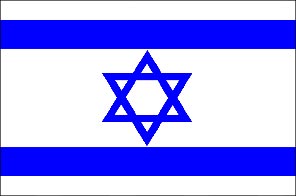Heat turned on Israel over settlements
BRUSSELS: Israel came under intense diplomatic heat Tuesday over its settlement activity in occupied east Jerusalem, with the European Union and Russia warning it not to violate a Middle East peace plan.
French President Nicolas Sarkozy also repeated "the need for a complete freeze" of settlement activity after talks with Egyptian leader Hosni Mubarak, while Israel's ambassador to Paris was summoned by the foreign ministry.
The warnings come after it emerged that planning authorities had given the green light to a project to build 20 new apartments on the site of a former hotel in the Arab half of the Holy City.
"The settlement should be stopped immediately in line with the roadmap," Russian foreign ministry spokesman Andrei Nesterenko said, referring to an international peace plan endorsed by the Israelis and Palestinians in 2003.
The apartments are due to be built on a site in Sheikh Jarrah, one of the most sensitive and upmarket neighbourhoods closest to the so-called Green Line which separates east and west Jerusalem.
Israel's ambassador in Washington, Michael Oren, was summoned to the State Department earlier this month to be told the project should be halted.
France echoed that summons Tuesday, with Foreign Minister Bernard Kouchner telling reporters that the Israeli ambassador Daniel Shek "will be received this afternoon or tomorrow" and given an identical message.
His comments came as Sarkozy had a working lunch in Paris with his veteran Egyptian counterpart Mubarak, whose country is one of only two Arab countries to have full diplomatic relations with Israel.
The European Union's current Swedish presidency also weighed in, warning Israel against any "provocative" action in east Jerusalem.
"The presidency of the European Union urges Israel to refrain from provocative actions in East Jerusalem, including home demolitions and evictions, as stated also by the Quartet 26 June 2009," said a statement.
"Such actions are illegal under international law," it added.
The EU was concerned at the latest in a series of eviction orders issued to families in east Jerusalem, the statement continued.
"We have raised our concerns with the Israeli government and call on Israel to suspend these eviction notices immediately," it added.
Despite the criticism, Israel insisted that its "right" to all of Jerusalem was not up for discussion.
"Israel is working and will continue to work in accordance with its vital national interests, especially with respect to Jerusalem," said Danny Ayalon, deputy foreign minister.
"Our right to Jerusalem includes its development and that is not subject to debate."
Israel captured east Jerusalem in the 1967 Six Day War and later annexed it in a move not recognised by the international community.
It sees all of Jerusalem as its "eternal, undivided" capital and does not consider construction in east Jerusalem to be settlement activity.
The Palestinians want to make the east of the city -- home to some 200,000 Jewish Israelis in 121 settlements and 268,000 Palestinians -- the capital of their future state.






